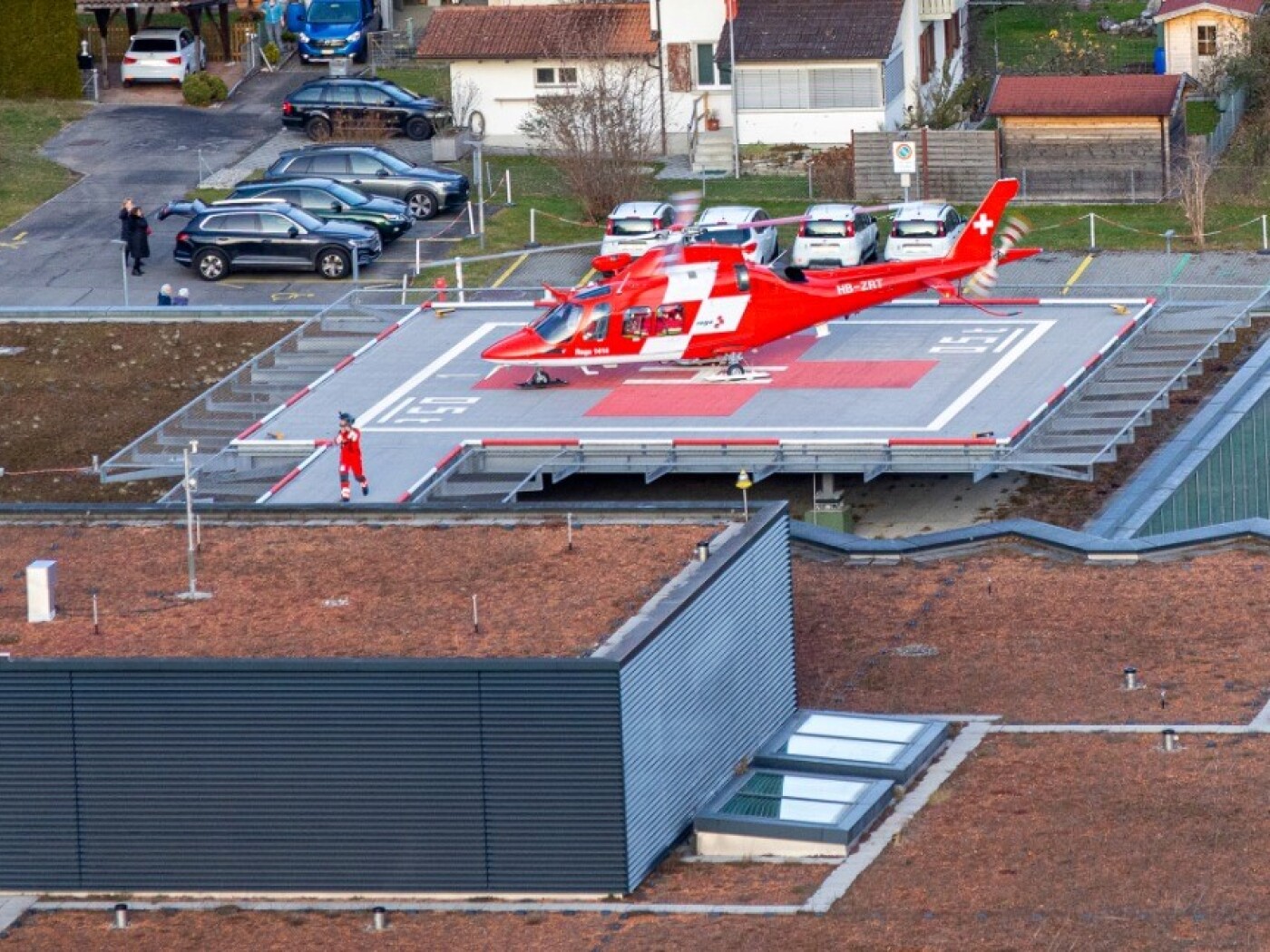
Swiss helicopter rescue pioneers safe autopilot approach system

Swiss air rescue service Rega has received approval from the Federal Office of Civil Aviation for a new instrument flight system for approaching a hospital. It claims to be the first company in the world with this system.
The new instrument flight system was developed in close collaboration with the Federal Office of Civil Aviation (FOCA), the air navigation service provider Skyguide, the system designers and the helicopter manufacturer Leonardo. It was deployed on Thursday at Interlaken Hospital in the canton of Berne after five years of development.
According to the information provided, it represents an improvement on the previously approved procedure by enabling even more precise navigation in poor visibility using autopilot.
According to the FOCA, the aim in Interlaken is to gather experience. The Federal Office is working together with the European Aviation Safety Authority. This sets the standards for new helicopter procedures. With the world’s first approval for the new system, Switzerland can play a significant role in shaping these standards, the FOCA wrote.
According to Rega, its strategy is “Rescue in all weathers”. Together with the FOCA, it is working on a Swiss network for instrument flight routes at low altitudes. In this network, its helicopters fly a route stored in the on-board computer.
The network connects airports, airfields, Rega bases and now ten hospitals. A further seven hospitals are ready to be approved for instrument flight procedures.
Adapted from German by DeepL/ac
This news story has been written and carefully fact-checked by an external editorial team. At SWI swissinfo.ch we select the most relevant news for an international audience and use automatic translation tools such as DeepL to translate it into English. Providing you with automatically translated news gives us the time to write more in-depth articles.
If you want to know more about how we work, have a look here, if you want to learn more about how we use technology, click here, and if you have feedback on this news story please write to english@swissinfo.ch.

In compliance with the JTI standards
More: SWI swissinfo.ch certified by the Journalism Trust Initiative




























You can find an overview of ongoing debates with our journalists here . Please join us!
If you want to start a conversation about a topic raised in this article or want to report factual errors, email us at english@swissinfo.ch.